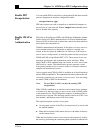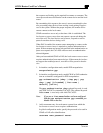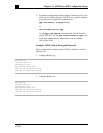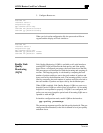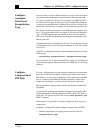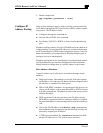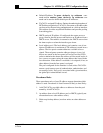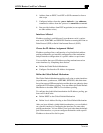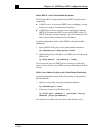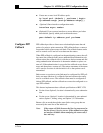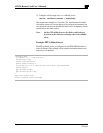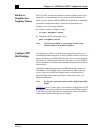
AI2524 Router Card User’s Manual
Page 11-10 August 1997
2524UM
4. Address from an EXEC-level PPP or SLIP command or from a
chat script
5. Configured address from the
peer default ip address
command or address from the
protocol
translate
command
6. Peer provided address from IPCP negotiation (not accepted unless
no other address exists)
Interfaces Affected
IP address pooling is available on all asynchronous serial, synchro
nous serial, ISDN BRI, and ISDN PRI interfaces running the Point-to-
Point Protocol (PPP) or Serial Line Internet Protocol (SLIP).
Choose the IP Address Assignment Method
IP address pooling allows configuration of a global default address
pooling mechanism, per-interface configuration of the mechanism,
and per-interface configuration of a specific address or pool name.
You can define the type of IP address pooling mechanism used on
router interfaces by completing these actions:
z
Define the Global Default Mechanism
z
Configure Per-Interface IP Address Assignment
Define the Global Default Mechanism
The Global Default Mechanism applies to all point-to-point interfaces
(asynchronous, synchronous, ISDN BRI, ISDN PRI, and dialer inter-
faces) that support PPP encapsulation and that have not otherwise been
configured for IP address pooling. You can define the Global Default
Mechanism to be either DHCP or local address pooling.
To configure the global default mechanism for IP address pooling, per-
form one of these tasks:
z
Define DHCP as the Global Default Mechanism
z
Define Local Address Pooling as the Global Default Mechanism
After you have defined a global default mechanism, you can disable it
on a specific interface by configuring the interface for some other
pooling mechanism. You can define a local pool other than the default
pool for the interface, or you can configure the interface with a specifi
IP address to be used for dial-in peers.




